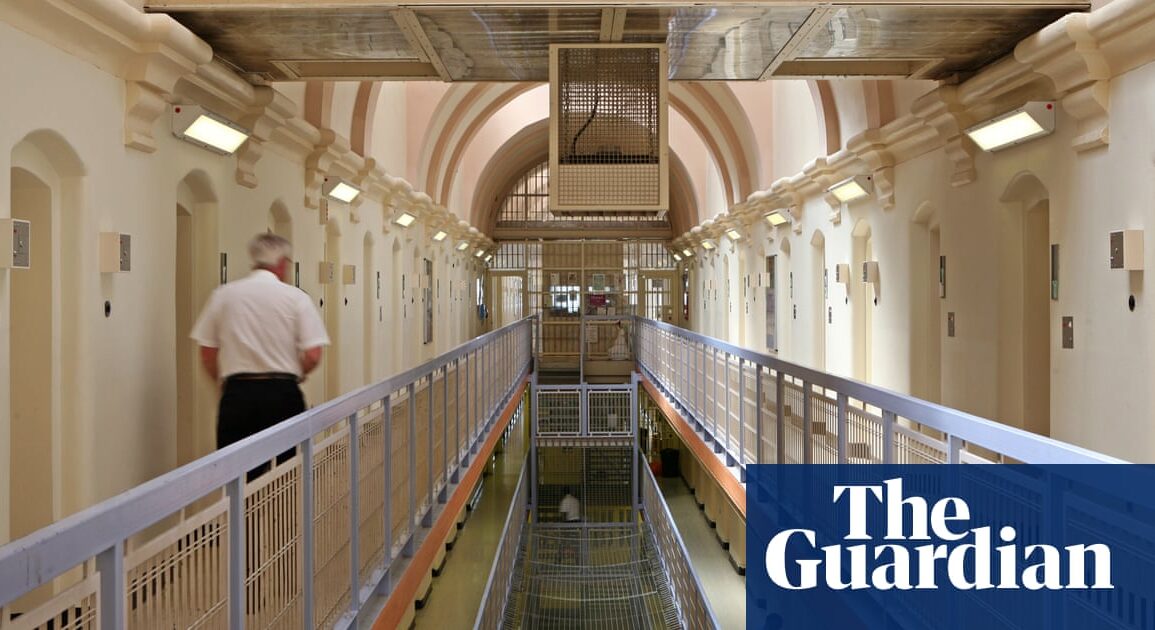
Five of the most senior former judges in England and Wales have warned that “radical solutions” such as the earlier release of killers and rapists on licence should be considered to ease the prison overcrowding crisis.
The four surviving former lord chief justices – Lord Woolf, Lord Phillips of Worth Matravers, Lord Thomas of Cwmgiedd, and Lord Burnett of Maldon – and Sir Brian Leveson, the only surviving president of the queen’s bench division, have recommended a review at the halfway stage of the determinate sentences of all prisoners serving longer than 10 years.
Other proposals include the release of all prisoners serving indeterminate sentences who are over tariff and removal of all those who are elderly, dying or who have dementia from prison.
The former judges say there is no justification for the doubling of custodial sentence lengths over the last half century. The number of people in prison has risen from about 40,000 in 1991 to more than 88,000 today.
The intervention comes four days before about 1,500 people are released from prison under an emergency measure, which reduces from 50% to 40% the proportion of custodial sentences to be served in prison for some.
Shabana Mahmood, the lord chancellor, has decided to undertake an urgent independent review of sentencing legislation and practice.
In a paper published by the Howard League for Penal Reform, the judges recommend that “for those currently serving lengthy sentences, accelerated routes out of custody should be explored and would potentially incentivise people in prison to cooperate with regimes”.
These could involve a “review of the sentences of all prisoners serving longer than 10 years at the halfway stage and then at regular intervals, resulting in earlier release on licence or sentence reduction”. A spokesperson for the Howard League added that the proposal was only in reference to determinate sentences.
Other suggestions include:
-
The release of all IPP [imprisonment for public protection] prisoners and two-strike prisoners who are over tariff, with support in the community.
-
A review of the needs and risk levels of older prisoners upon reaching a certain age, followed by a move to a more appropriate secure location if required.
-
Reinstating the provision that releases those prisoners who must serve two-thirds of their sentences to one-half.
-
Regular review of “minimum terms” for people serving indeterminate sentences.
-
An increase in the size and number of the open (category D) prison estate to help inmates return to work, education and family for those serving long sentences.
-
Life-sentenced prisoners should be allowed to apply to move to open prison years earlier than the current three years before release.
Phillips, who chaired the former judges’ discussion, said:
“The current crisis in prisons has meant that there is now political engagement at the highest levels of government with the question of who goes to prison and for how long. The primary cause of prison overcrowding in 2024 is decades of sentence inflation.
“If prisons are to become places of rehabilitation and restoration to citizenship, places where prisoners can receive the support and interventions needed to return safely to the community and desist from offending, there needs to be a fundamental shift in the drivers of sentencing policy.
“We call for an honest conversation about what custodial sentences can and cannot achieve; their human and financial costs; and urge a return to more modest proportionate sentences across the board.”
The paper claims legislative changes, driven by single-issue campaigns and emotive media coverage, have been the main drivers of sentence inflation.
“There have been very many criminal justice acts, increasing statutory maxima (for example, for causing death by dangerous driving) and introducing mandatory minimum sentences (for example, for firearms offences, repeat burglary or drug dealing).
“Many of the changes have been driven by single-issue campaigns which attract emotive media attention,” it said.
The SDS40 scheme, which will free 5,500 prisoners over two months, will be launched on 10 September for those serving sentences of five years or less. A second tranche of prisoners – those who have served sentences of five years or more – will be released on 22 October.
A Ministry of Justice spokesperson said: “The new government inherited a justice system in crisis, with prisons on the point of collapse. The lord chancellor has already taken action to make sure we can continue to lock up dangerous offenders, protect the public and reduce reoffending.
“We will also publish a 10-year strategy on prison supply and launch a comprehensive review of sentencing by the end of the year, and will carefully consider this report.”
This post was originally published on this site be sure to check out more of their content.









